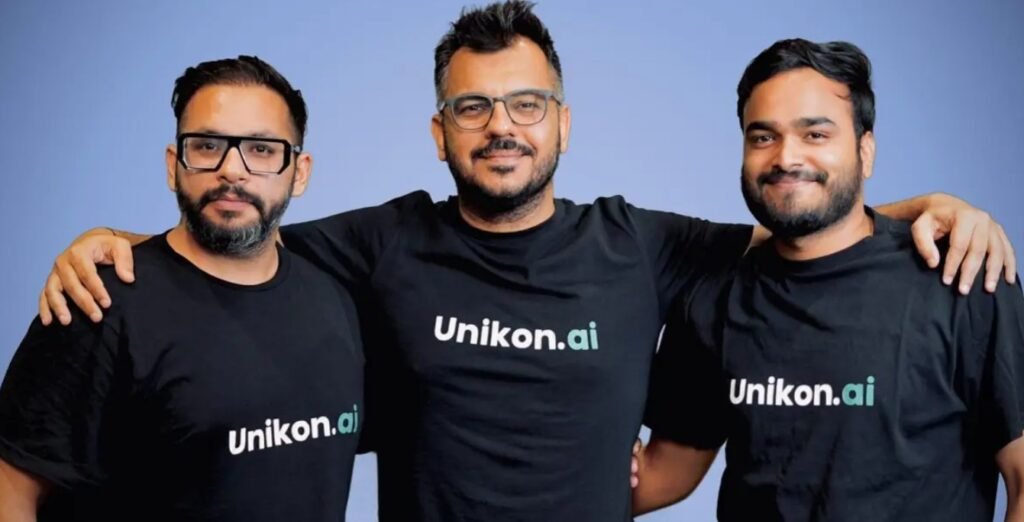The Rise & Fall of an AI Vision startup
In early 2024, Unikon.ai launched with a bold vision. It aimed to create an AI-powered networking platform to change professional connections. Backed by investors like Nikhil Kamath and Peyush Bansal, it quickly raised nearly $3M. Founder Aakash Anand, known for Bella Vita Organic, promised a future where AI would transform interactions.
Yet, just eight months later, that dream faded. Unikon.ai shifted to a direct-to-consumer (D2C) model, becoming another player in a crowded market.
What went wrong? Why did this AI-focused company abandon its vision so quickly?
Where Was the AI?
Despite its AI branding, Unikon.ai struggled to implement real artificial intelligence. It was marketed as an AI-driven LinkedIn alternative, connecting users with experts through video calls and tailored feeds. However, insiders revealed that AI was more of a marketing tool than a core technology.
Former employees noted that the AI concept was poorly defined. The company claimed to use machine learning to connect users with experts, but evidence was scarce. Instead, it functioned like any other networking site, relying more on manual curation than AI.
Cracks in the System
The problems went beyond AI. Unikon.ai faced challenges in attracting and keeping users. Although it enlisted well-known experts like Akash Gupta and Amit Choudhury, it struggled to gain traction. The main issue was getting enough professionals to sign up and engage regularly.
Here’s what went wrong:
- Low Conversion Rates: Out of 1,000 daily users, only about 100 became paying customers.
- Frequent App Crashes: Technical issues disrupted experiences, leading to cancellations.
- Unqualified Experts: The platform lacked proper vetting, allowing anyone to claim expertise.
- High Cash Burn: Operating costs were too high, with a monthly burn rate of INR 2 Cr.
To boost retention, Unikon.ai offered in-app credits and pushed its sales team to book expert calls. Employees even recruited friends and family to meet targets. But these tactics couldn’t stop the decline.
The Pivot to D2C
Facing losses and a flawed model, Aakash Anand decided to pivot. In an email to investors, he admitted that scaling Unikon.ai would require too much cash and wasn’t sustainable. He announced the shift to a D2C brand, leveraging his experience with Bella Vita Organic.
Surprisingly, this pivot seemed planned long before the announcement. Sources indicated that many employees from Anand’s other company, Wolfpack Labs, were on Unikon.ai’s payroll. When layoffs hit Unikon.ai (50% of staff were let go in February 2025), some employees transitioned smoothly to Wolfpack’s other brands.
Investor Fallout & AI Hype
Unikon.ai’s sudden shift raises difficult questions for its investors. Many top angel investors in India backed this AI startup, only to see it become something different within a year. While Anand assured investors their stakes remained intact, the pivot highlights how loosely defined AI startups can secure funding without a solid technology roadmap.
For those who invested in Unikon.ai, this serves as a wake-up call: AI hype alone isn’t enough. Investors must look beyond buzzwords and see if startups have real technological depth before investing millions.
Final Analysis: The Takeaway for Founders & Investors
- AI Alone Won’t Save a Startup – Unikon.ai shows that simply branding a product as AI-powered won’t sustain a business. Real tech execution is essential.
- User Acquisition & Retention Matter More Than Hype – Despite strong investor support, Unikon.ai failed to scale due to poor user onboarding and retention.
- Burning Cash Without a Plan is a Recipe for Failure – Spending INR 14 Cr of the INR 24 Cr raised within months, without a clear revenue model, forced the company into an early pivot.
- Investors Must Demand Real AI Innovation – AI is a buzzword, but backing companies without a solid AI foundation will lead to more cases like Unikon.ai.
At its core, Unikon.ai’s downfall wasn’t just about AI—it was about execution. The startup had funding, connections, and a narrative. But without a well-defined product and clear growth strategy, the pivot became inevitable.
In the end, Unikon.ai may still succeed in the D2C space. But its story offers a lesson for founders and investors alike—AI is powerful, but only when it’s more than just a marketing gimmick.
Tags- AI
Recent-https://startupbydoc.com/


